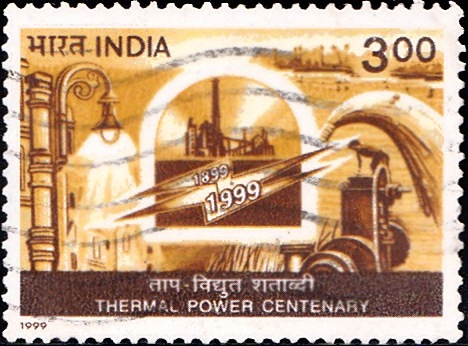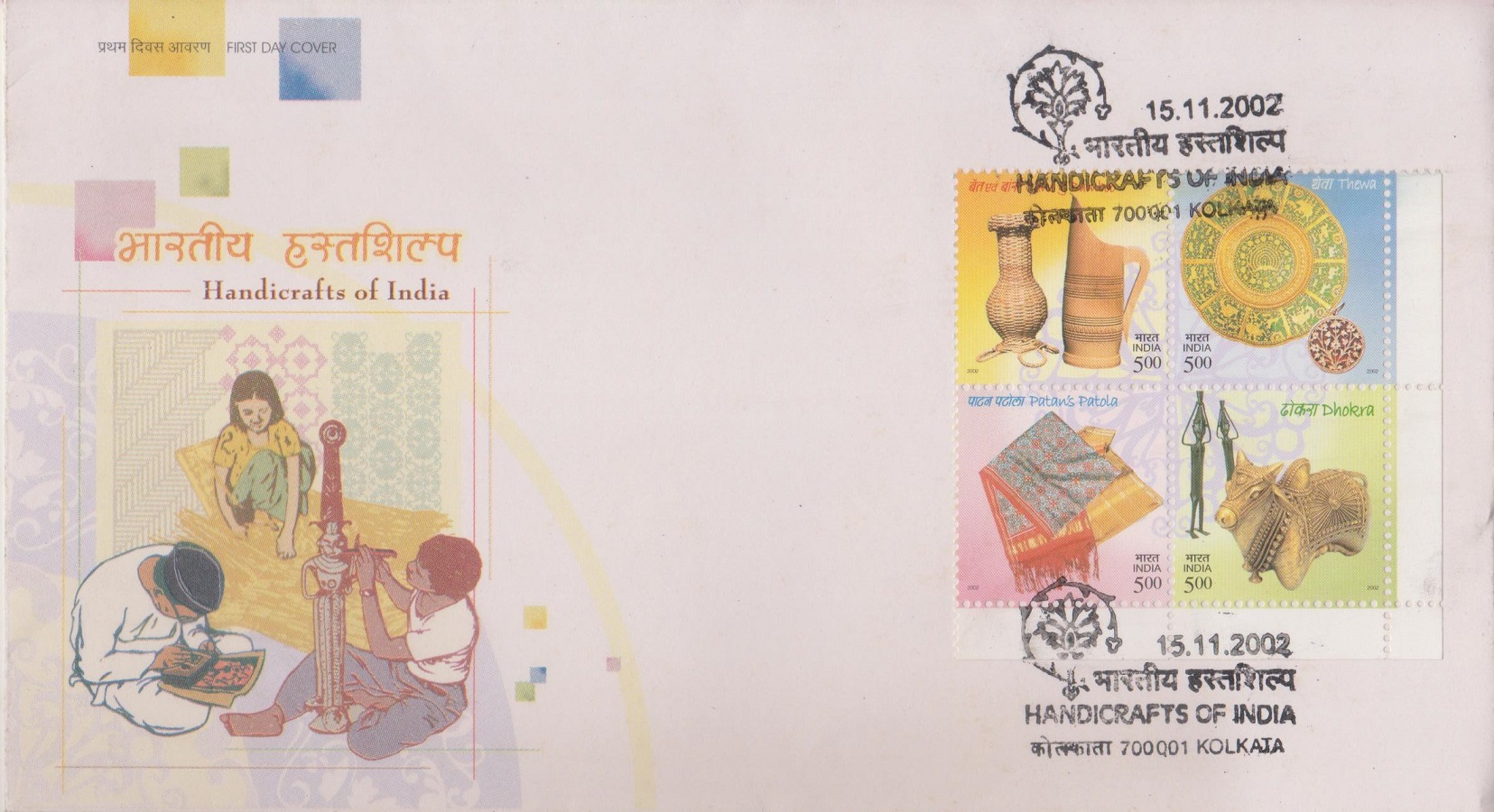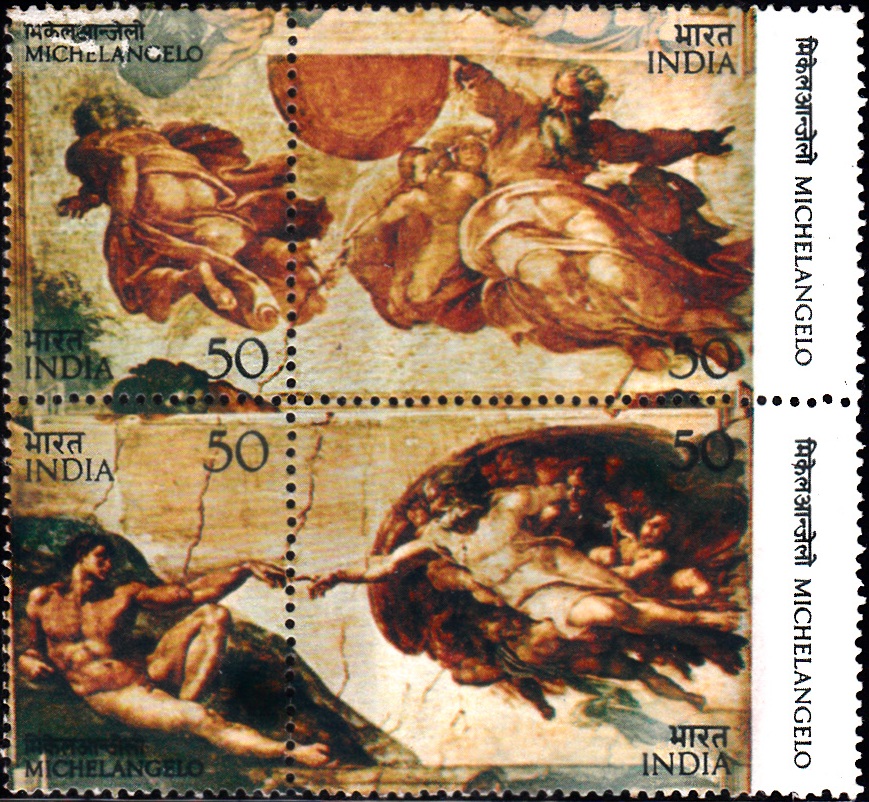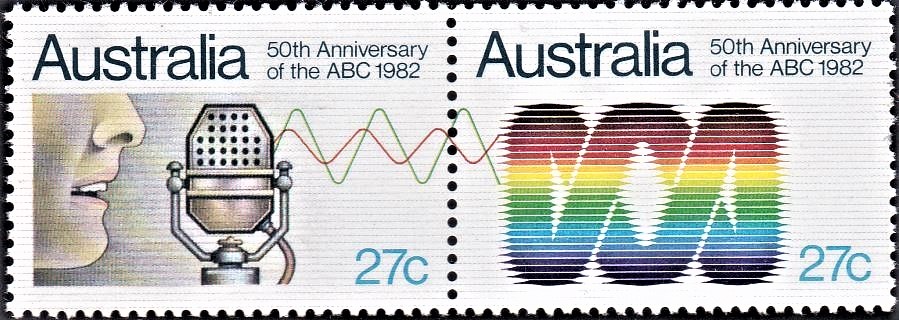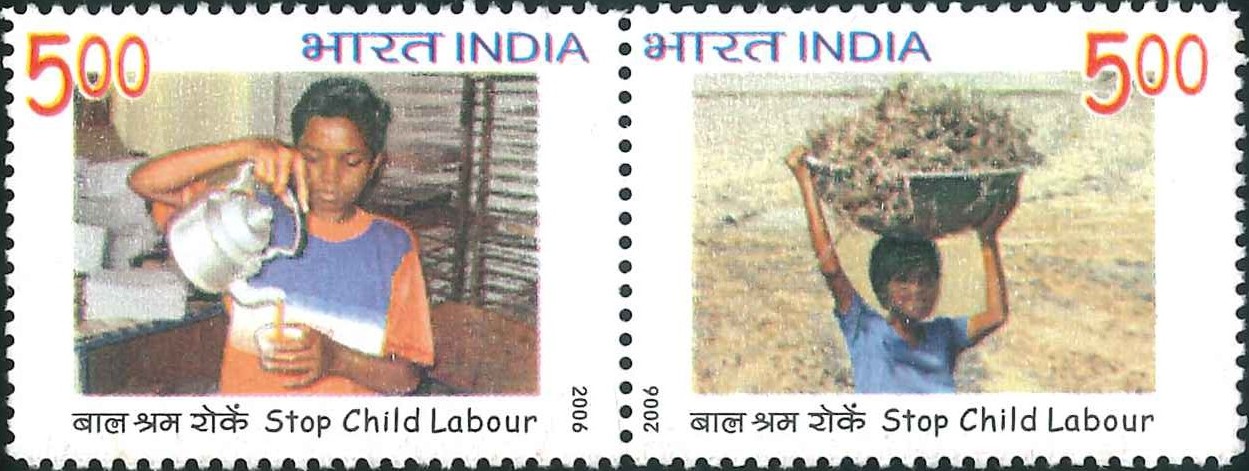
India on Renewable Energy 2007
Complete Set of 4 nos of postage stamps on the Renewable Energy : Solar Energy, Wind Energy, Small Hydro Power and Biomass Energy :

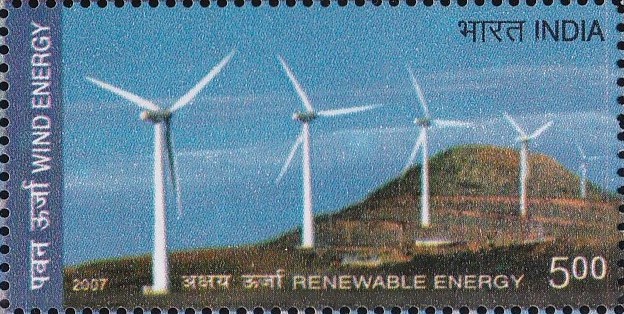
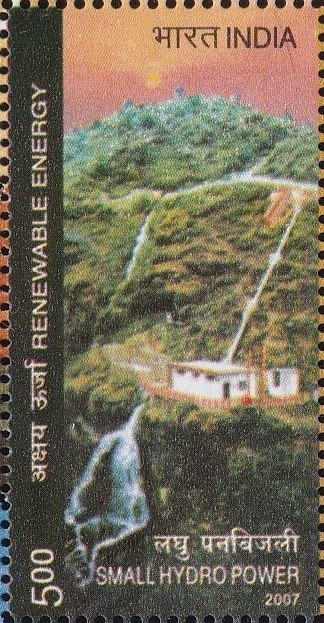
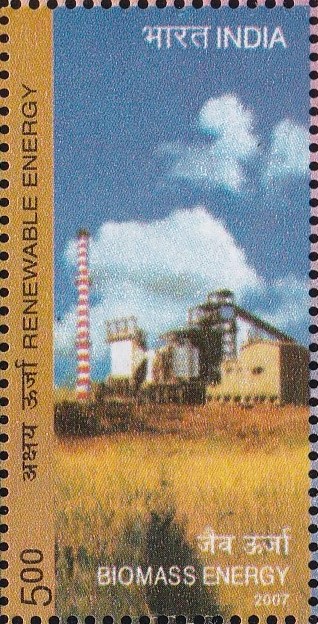
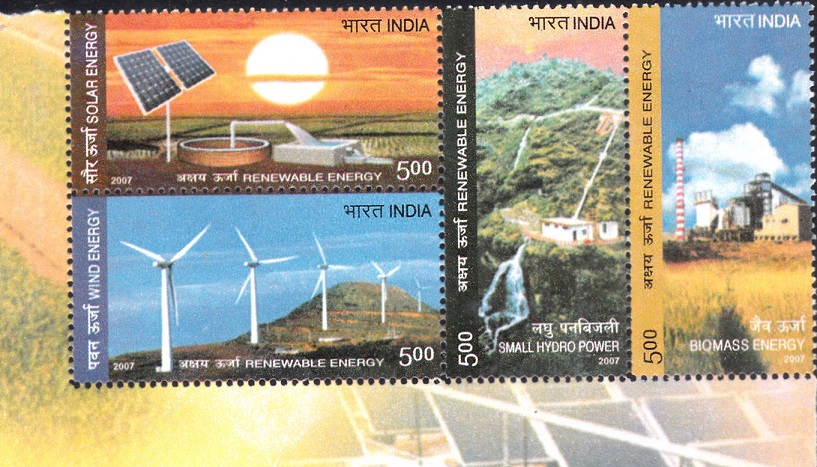
 Issued by India
Issued by India
Issued on Nov 22, 2007
Issued for : The Department of Posts is happy to issue a set of four commemorative postage stamps on Renewable Energy depicting the four common applications of renewable energy i.e. Solar Energy, Wind Energy, Small Hydropower and Biomass Energy.
Credits :
Stamp & FDC : Sankha Samanta
Cancellation : Alka Sharma
Type : Se–tenant block of 4 Stamps (two horizontal and two vertical), Mint Condition
Colour : Multi colour
Denomination : 500 Paise each
Stamps Printed : 0.8 Million each
Miniature Sheet : 0.2 Million
Printing Process : Photogravure
Printer : India Security Press, Nasik
About :
- Energy is a basic requirement for economic development. Every sector of economy – agriculture, industry, transport, commercial and domestic – needs inputs of energy. The economic development plans implemented since independence in India have necessarily required increasing amounts of energy. As a result, consumption of energy in all forms has been steadily rising all over the country.
- This growing consumption of energy has also resulted in the country becoming increasingly dependent on fossil fuels such as coal, oil and gas. Rising prices of oil and gas and potential shortages in future lead to concerns about the security of energy supply needed to sustain our economic growth. Increased use of fossil fuel also causes environmental problems both locally and globally.
- Against this background, the country urgently needs to develop a sustainable path of energy development. Promotion of energy conservation and increased use of renewable energy sources are the twin planks of sustainable energy supply.
- Fortunately, India is blessed with variety of renewable energy sources, the main ones being biomass, biogas, the sun, wind and small hydropower.
- Advantages of renewable energy are that it is:
- Perennial.
- Available locally and does not need elaborate arrangements for transport.
- Usually modular in nature, i.e. small-scale units and systems can be almost as economical as large-scale ones.
- Environment-friendly.
- Well suited for decentralised applications and use in remote areas.
- The Government has been implementing comprehensive programmes for the development and utilisation of various renewable energy sources in the country. As a result of efforts made during the past 25 years, a number of technologies and devices have been developed and have become commercially available. These include biogas plants, improved wood stoves, solar water heaters, solar cookers, solar lanterns, street lights, pumps, wind electric generators, water-pumping wind mills, biomass gasifiers and small hydro-electric generators. Energy technologies for the future such as hydrogen, fuel cells and bio-fuel are being actively developed.
- India is implementing one of the world’s largest programmes in renewable energy. The country ranks second in the world in biogas utilization and fourth in wind power. Renewable sources already contribute about 16,500 MW, which is about 7.5% of the total installed power capacity in the country.
- Text : Based on material provided by the proponent.


